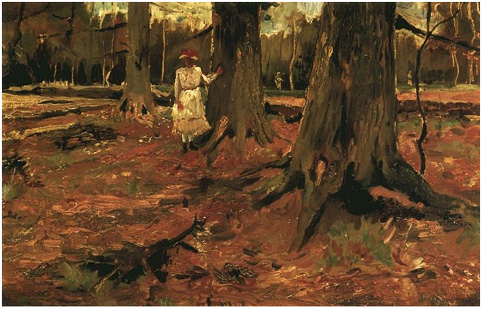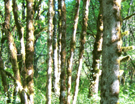Chapter 8: Tree Farm Stewardship
From A Guide to Innovative Tree Farming in the Pacific Northwest by Mike Dubrasich. 2005. Whirlwind Press. For a hard copy of the book ($10 - includes shipping) please contact W.I.S.E. [here].

Tree farming is an enjoyable, worthwhile, and honorable occupation. Those of us lucky enough, or determined enough, to be tree farmers are privileged to be able to do it. With that privilege comes the responsibility to be good stewards of the land.
Tree farm stewardship is using property to produce commodities while preserving the intrinsic productivity of the land. Tree farm practices should never abuse, erode, pollute, or otherwise render land, yours or your neighbor’s, unfit for agriculture. Good stewardship means protecting water and air quality, too. Fortunately, good stewardship and innovative tree farming go hand-in-hand.
Ownership of tree farms by individuals and families promotes good stewardship. Stewardship is a relationship between the landowner and the land. People develop deep psychological identifications with property. For landowners especially, our properties become part of our identities. Owners care for their lands as they care for themselves and their families. The landowner who harms his property harms himself, and generally loses his land. Public land, property that no individual can claim as a unique identity, receives notoriously bad stewardship.
Public policies aimed at achieving good land stewardship should promote private property ownership. It’s in the public’s interest to have a free market in land, without monopolies or government-owned agri-businesses. It’s in the public’s interest to prevent pollution and land degradation, and private individual ownership provides that stewardship function better than any other form of land ownership.
The exceptions to this rule might be parks, forests, and nature preserves. We need wild places, and privately-owned property is never truly wild. This is not to say that private property owners should never grow forests, but the luxury is beyond the means of most of us. Only public lands hold the possibility of growing real forests. Real forests are big; they are vast stretches of natural ecosystem. I hope that someday public agencies will learn how to be good stewards of parks, forests, and nature preserves.
Innovative and successful tree farmers form deep bonds with their properties. Tree farmers are there when the rising sun shafts through the trees, when the rains fall, when the breezes blow, when the flowers bloom, when the birds sing, and when the setting sun paints the sky. Tree farmers kneel to plant seedlings in acts of faith, and watch year after year as the trees fulfill their promise and grow toward the sky. Tree farmers are grown on tree farms, too. Of such stuff is great stewardship made.
by RanchWabble

In some native american cultures it is believed that to harm certain trees can release spirits that need to be pleased to restore order back to the land.